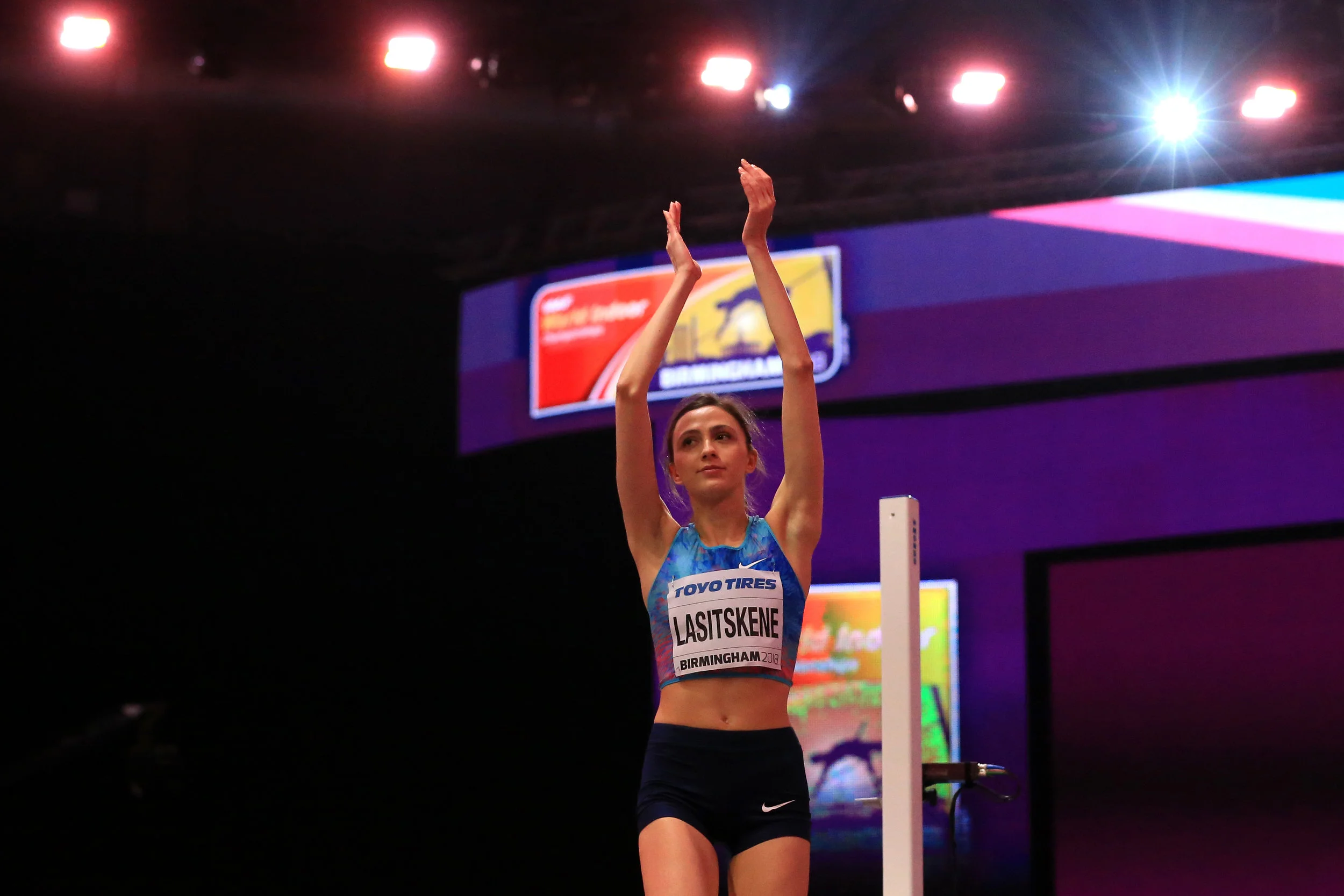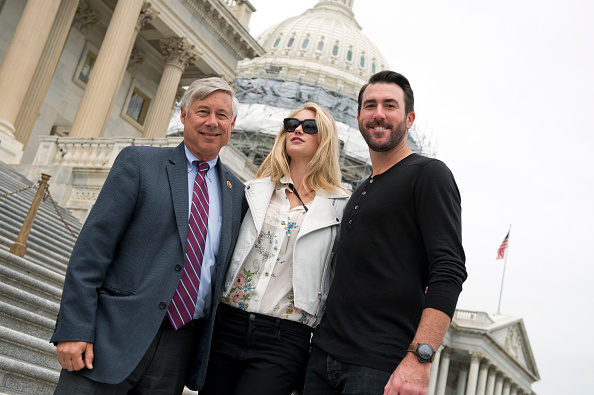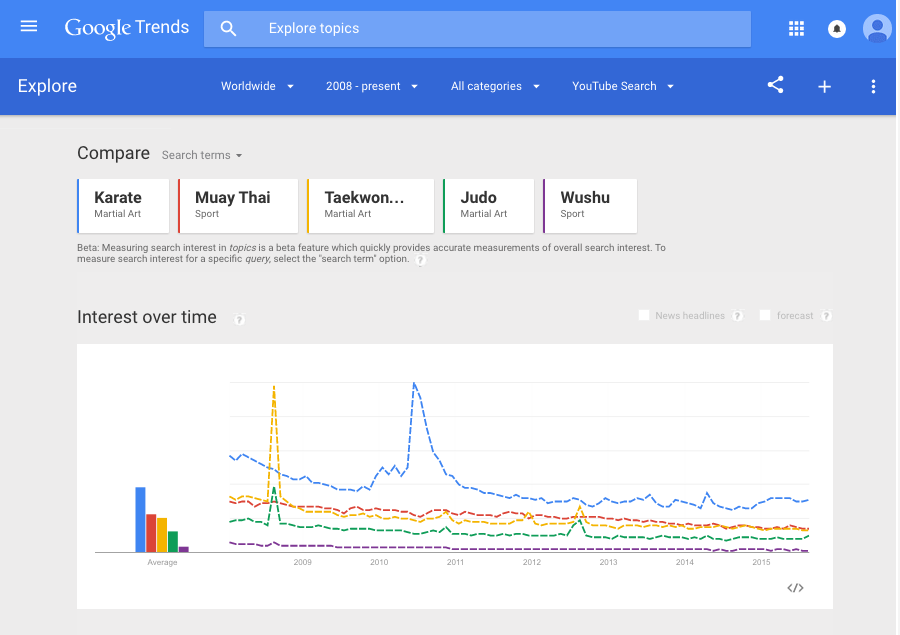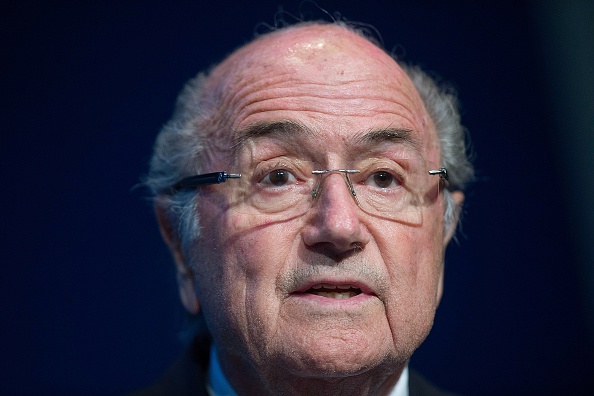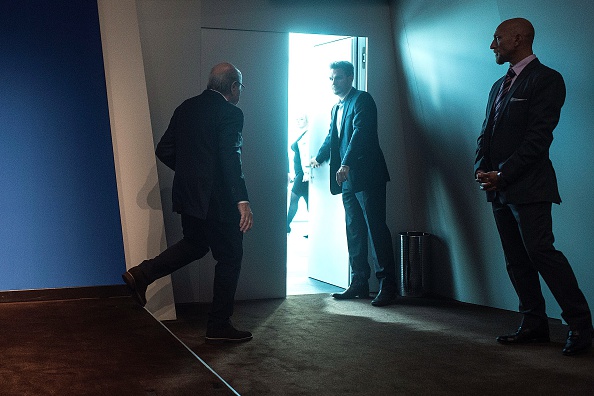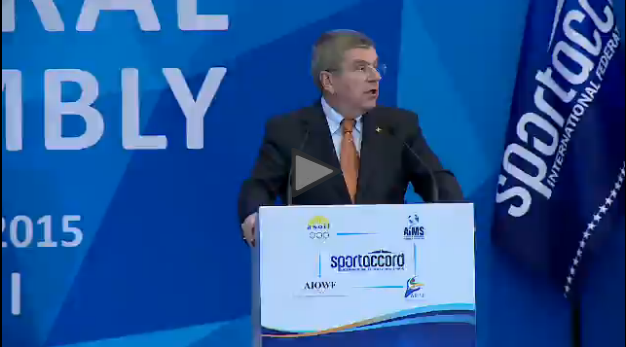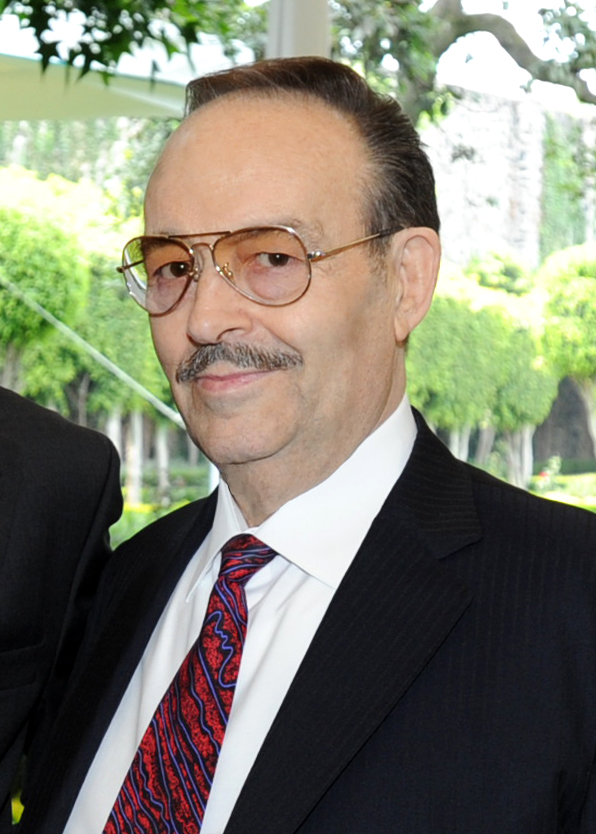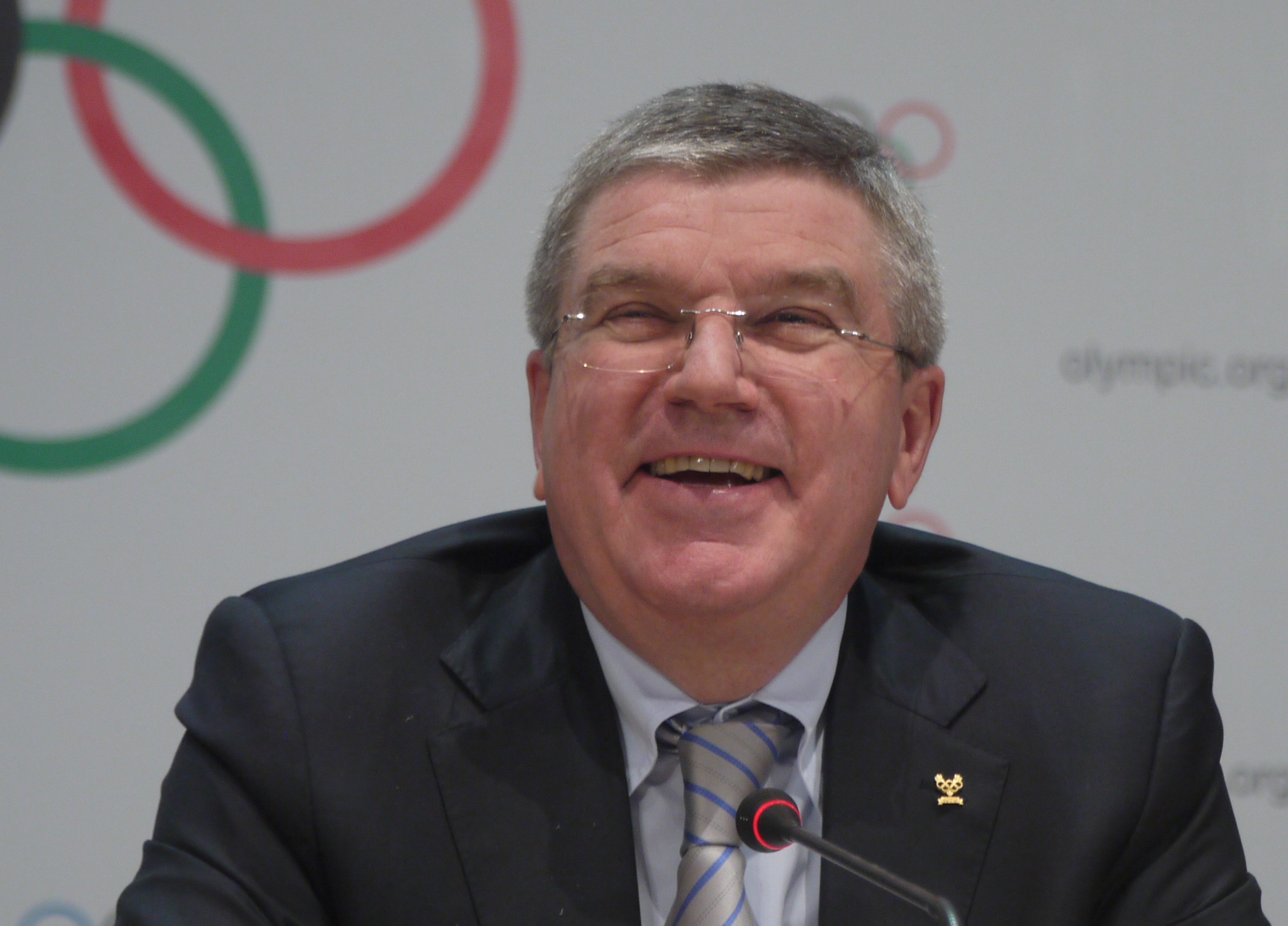Give the U.S. Olympic Committee credit. For years, as the dismal results from the New York 2012 and Chicago 2016 votes proved, it simply was not effectively in the Olympic bid game.
What it needed was a wink and a nod, a high sign if you will, from the International Olympic Committee, that the IOC not only wanted a city to bid from the USOC, but which city. The USOC got that last week when IOC president Thomas Bach wrote an op-ed in the Boston Globe two days before the USOC picked its city for the 2024 Summer Games. It picked Boston.
The fascinating question now is whether it’s genuinely in the IOC’s interest, in signaling that choice, for Boston to win.
Or whether in seemingly directing the USOC to pick Boston, the IOC is only playing the USOC — manipulating it so that the IOC gets as strong a field as possible for a 2024 race designed to attract maximum worldwide attention after the debacle that is the 2022 Winter Games race, which has devolved into a two-city derby, Beijing and Almaty, Kazakhstan.
The IOC won’t make its 2024 choice until the summer of 2017, two-plus years from now.

A lot can, and surely, will happen. Bids are possible from Rome; Paris; Germany; and elsewhere.
If the South Africans finally prove serious about getting in for 2024, they will run Durban. Because of the IOC’s stubborn refusal to allow bid visits — a plank that didn’t make it into the so-called “Agenda 2020” reforms, Bach’s 40-point plan approved last month in Monaco — the members will not be allowed to visit Boston. But most of the members will have been to seaside Durban, because that was where the IOC held its assembly in 2011.
To be perfectly blunt: IOC campaigns are not for the faint of heart or the politically naive.
So many variables.
What if, as is now the talk in some circles, FIFA, the international soccer federation, awards its 2026 World Cup in 2017 — in, say, May 2017? That is, just before the IOC vote.
Wouldn’t US Soccer love to get back on the opportunity it missed out on for 2018 and 2022, won by Russia and Qatar, respectively? Wouldn’t FIFA love to capitalize on the purportedly growing U.S. interest in soccer? Don’t think for a second, by the way, that there is much love lost between FIFA and the IOC.
What then for an American Olympic bid?
While Bach and FIFA’s Sepp Blatter — assuming Blatter is re-elected — sort things out, both for 2022 and 2026, this much is elemental: the way Bach runs the IOC is in many ways evocative of Juan Antonio Samaranch, the IOC president from 1980-2001.
Samaranch knew what he wanted. Bach seems to be following the same path.
As an example: in Monaco, Bach allocated two days for passage of Agenda 2020. Just like Samaranch would have done, however, he clearly had worked things out beforehand via personal meetings or on the phone (or, now, via email). All 40 measures got passed in just one day.
That is why the Bach op-ed piece in Tuesday’s Globe is so telling.
By itself, it was anodyne, a recitation of the passage in Monaco of the 40 Agenda 2020 bullet points.
The issue here is context.
The other three cities competing against Boston for USOC consideration: San Francisco, Washington, Los Angeles.
Did Bach’s op-ed run in the San Francisco Chronicle, Washington Post, Los Angeles Times? No.
Did it run in the New York Times, the de facto paper of record in the United States? No.
USA Today? No.
Let’s not be obtuse.
When unusual things present themselves, reasonable people are given to ask, what’s going on?
In this instance: why did the IOC take the unusual step of interjecting itself into the USOC’s domestic bid process?
Theory 1:
Last May, NBC paid $7.65 billion dollars (plus an extra $100 million “signing bonus” to be used for “the promotion of Olympism”) for the right to televise the Games in the United States from 2021 through 2032. The first Summer Games: 2024.
NBC has never -- and would never -- exercise its influence to lobby for a particular city. The network does not do that. That's the gospel truth.
However, this much is not rocket science: an East Coast time zone amounts to a home Games for NBC Olympics, which is based in Stamford, Connecticut.
Washington was never going to get 2024. Never. So that leaves Boston.
If this theory is plausible, then the Globe op-ed signals that what you see is what you get — Bach has given the USOC the wink and the nod and the rest of the next two-plus years is pretty much for show. Hey, Paris, Rome, Durban, whoever: thanks for playing and see you in Boston in 2024.
So is it really that simple? Or are things more layered?
Theory 2:
Everyone connected to the process knew Los Angeles had the best bid. Even the oddsmakers, who made it an even-money choice.
Indeed, the LA bid contained surprises that may never become public, including a big bang that unequivocally wowed everyone at the USOC and would have gone far to enhance the IOC’s furtherance of sustainability and legacy.
Further, the choice of Boston is layered with contradictions.
“Bostonians are well known for their enthusiasm for sport and the city has a great heritage in sport, science and education,” Bach told Associated Press after the selection.
Like Los Angeles doesn’t?
Los Angeles has three top-25 universities: Cal Tech, USC and UCLA. Boston has two: Harvard and MIT.
You want championships: Lakers? Kings? USC in college football? UCLA in college basketball?
The very thing that supposedly worked against Los Angeles in recent bid efforts — that the dorms at USC and UCLA served as housing in 1984 — is now a big plus for Boston’s 2024 bid? College dorms in Boston are a plus but a minus in LA? Say what?
There are dozens of universities in and around Boston. That’s the key demographic the IOC is seeking, and supposedly a big Boston plus. What about all the Cal State schools (LA, Northridge, Dominguez Hills, on and on), the Claremont colleges, the dozens and dozens of community colleges in and around Los Angeles?
The IOC, in Agenda 2020, talks big about sustainability. Yet Boston 2024 has to build an Olympic stadium while Los Angeles is home to the iconic Coliseum.
How much will that Olympic stadium cost? Let’s see. LA has been without an NFL team for 20 years. Last Monday, the owner of the St. Louis Rams — the Rams used to play in Southern California — announced plans to build a stadium in Inglewood, California, the LA Times noting that new stadiums tend to run to $1 billion or more. How is a new Olympic stadium in Boston going to prove in line — in any way — with the Agenda 2020 call for enhanced frugality?
And this: “I knew that Boston was destined to win this,” Boston Mayor Marty Walsh said after the USOC decision. As the Boston Globe reported, Boston 2024 paid about $1 million for an insurance policy of up to $25 million to protect City Hall “from any liabilities associated with the bid,” signing off on the policies Wednesday — that is, the day before the USOC decision.
So interesting. The standard USOC bid city agreement between calls for a city to pay $25 million in “liquidated damages” to the USOC if for some reason something freaky happens and the city drops out. For those not familiar with the term, “liquidated damages” is fancy lawyer talk for “cash money.” Essentially, if indeed that is what the policy went for, what Boston 2024 did was shift it so that $25 million is now some insurance company's worry.
But why?
And why Wednesday, the day before the USOC meeting?
The Globe report also said that Boston officials were the only group from among the four bid cities that insisted on buying this kind of insurance. Why? Also, you know, this kind of insurance takes a little bit of time to line up. It's not like you go down to your neighborhood insurance agent and say, hey, I'd like to lay down $1 million for $25 million, assuming again this is what it was for. Did Boston get a wink and a nod from the USOC in advance, and if so, when?
So many questions.
Good thing Boston officials have pledged transparency. For the sake of Journalism 101, let's hope it's retroactive, not just going forward.

More questions: what was at the basis of all that vigorous debate the USOC said it went through?
The USOC has suggested it will explain why Boston -- perhaps as soon as early this week.
In the meantime, to stick to the core of Theory 2, is it that the IOC could prefer Boston because Los Angeles — especially with the support of key Olympic insiders — might well have been a sure winner?
Did Bach, in any event, want Boston to assert primacy over those others, who were known to prefer LA?
There is this, though, which is easy: it’s in the interest of the IOC president to secure as many cities as possible for whatever race is being run.
No question Bach wants a U.S. bid.
Even so, does he also have a counter-interest for 2024, to make Europe look good, particularly after six European cities dropped out for 2022?
The first European Games, in Baku, Azerbaijan, are due to be held this summer, and will almost surely be a success, giving renewed momentum to that continent’s bids. Always, always, always remember, too: the IOC is Eurocentric.
At most, Bach got three U.S. votes in 2013 for the presidency (there were then three U.S. IOC members, now four, with the addition of USOC board chairman Larry Probst). There are 40-something IOC members from Europe.
Do not be fooled, not even for a second, by the statement from the White House, which said President Obama and the First Lady “strongly support” the Boston bid. Even if the president does, and let's assume for argument he really does, for the sake of securing 55 or so IOC votes, the president's words are -- sorry to say -- dust in the wind.
Note: Bach has visited more than 90 heads of state since being elected IOC president in September 2013. President Obama is not among them.
Note, too: the statement was issued by the White House press secretary. When the president wants to emphasize something, as he did when California Sen. Barbara Boxer last Wednesday announced her impending retirement, that comes out as a different kind of statement — that’s from Obama himself.
These things matter a lot in politics, and they matter for a White House that, as the IOC will readily recall, sent a delegation to Sochi only last February that absolutely was designed to signal a protest about the Russian anti-gay law.
It's instructive to observe that Bach deliberately made public the official letter of support and sympathy he wrote to French president François Hollande after last week's terror attacks in Paris. One can argue whether such a letter is eminently decent as well as a show of humanity or treads dangerously close to the kind of thing you might see from a head of state, which Bach assuredly is not. At any rate, several world leaders attended Sunday's massive rally in Paris, including British Prime Minister David Cameron, Chancellor Angela Merkel of Germany, Prime Minister Benjamin Netanyahu of of Israel and President Mahmoud Abbas of the Palestinian Authority. The United States? Represented by its ambassador to France, Jane D. Hartley.
In the Olympic world, where protocol is hugely significant, appearances matter, too. And can be long remembered.
The White House statement about Boston 2024 also said, “The city has taught all of us what it means to be Boston Strong,” a reference to the 2013 marathon bombings.
Bach, in his comments to AP, said, “The Boston bid will be a strong one.”
With profound and enduring respect for the victims of the marathon attacks, this gentle note: the New York 2012 bid was launched after the Twin Towers went down. The IOC was not sufficiently moved, nearly four years later, when the 2012 vote was taken, to award the Games to New York; they went to London. By the time the 2024 vote is taken, the events that shook Boston near the finish line of the 2013 marathon will similarly have been four years prior.
Bach also told AP about Boston, “The bid also has the great potential to build on the strength of the athletes from the U.S. Olympic team,” adding, “U.S athletes have a worldwide reputation and will be a huge asset for the bid.”
This, to be diplomatic, is phraseology that Bach has borrowed from his predecessor, Jacques Rogge, when Rogge was asked by reporters to asses Chicago 2016 and New York 2012. Recall how those worked out.
To be clear: the USOC has, since 2009, made great strides in building relationships internationally. There seems to be zero question Bach has taken an interest in Boston.
There are also so many questions yet to be answered about why.
And about whether the time is right for the USOC, and Boston, and whether together they can craft a winning narrative to an IOC membership that is no longer widely hostile to American interests, as was the case during the Rogge years, but perhaps still wary and likely knows not very much about Boston.
The USOC is in the 2024 game with one objective only — to win. That has been made abundantly clear, time and again.
In that spirit, this: the Agenda 2020 rules now allow for five exceptions to the rule that IOC members must retire at age 70. In Monaco, one of the five exceptions was immediately granted to Gian Franco Kasper, who is Swiss and the head of the international ski federation.
This is what Kasper told AP about a U.S. 2024 bid, and this is what the USOC is still very much up against:
“Times have changed a little bit, but it depends how they will present their candidature. If they,” meaning the Americans,” come back with the old arrogance they had before, then of course it will not be helpful. But I think they have learned the lesson, too.”


